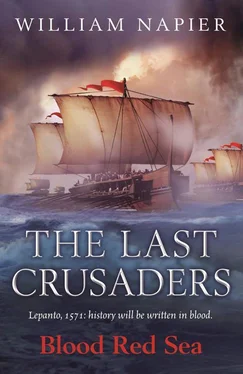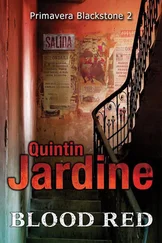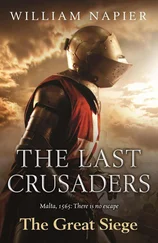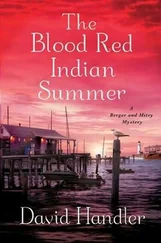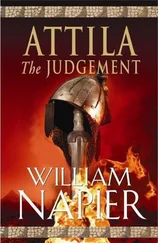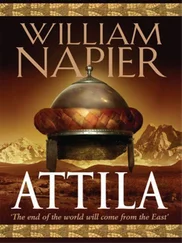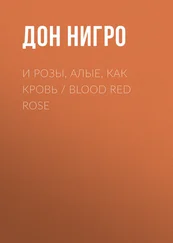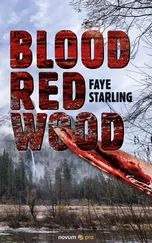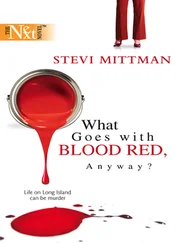William Napier - Blood Red Sea
Здесь есть возможность читать онлайн «William Napier - Blood Red Sea» весь текст электронной книги совершенно бесплатно (целиком полную версию без сокращений). В некоторых случаях можно слушать аудио, скачать через торрент в формате fb2 и присутствует краткое содержание. Жанр: Исторические приключения, на английском языке. Описание произведения, (предисловие) а так же отзывы посетителей доступны на портале библиотеки ЛибКат.
- Название:Blood Red Sea
- Автор:
- Жанр:
- Год:неизвестен
- ISBN:нет данных
- Рейтинг книги:4 / 5. Голосов: 1
-
Избранное:Добавить в избранное
- Отзывы:
-
Ваша оценка:
- 80
- 1
- 2
- 3
- 4
- 5
Blood Red Sea: краткое содержание, описание и аннотация
Предлагаем к чтению аннотацию, описание, краткое содержание или предисловие (зависит от того, что написал сам автор книги «Blood Red Sea»). Если вы не нашли необходимую информацию о книге — напишите в комментариях, мы постараемся отыскать её.
Blood Red Sea — читать онлайн бесплатно полную книгу (весь текст) целиком
Ниже представлен текст книги, разбитый по страницам. Система сохранения места последней прочитанной страницы, позволяет с удобством читать онлайн бесплатно книгу «Blood Red Sea», без необходимости каждый раз заново искать на чём Вы остановились. Поставьте закладку, и сможете в любой момент перейти на страницу, на которой закончили чтение.
Интервал:
Закладка:
He went on to Venice, and the city erupted in carnival as only Venice knows how. Business came to a halt, whores gave their services for free, debtors were loosed from prison. Ottoman standards were displayed on the Rialto, and all the Turkish merchants then in Venice hid quietly in their cellars. Only an express order from his Holiness in Rome prevented the Venetians from executing all their prisoners of war as part of the festivities.
All of Spain went wild, and fighting bulls were given turbans in the corrida. Ali Pasha’s green banner hung in the palace in Madrid. King Philip declared a national day of prayerful thanksgiving.
In Paris, the young Charles IX, or rather that kingdom’s true ruler, his mother, Catherine de’ Medici, allowed a grudging Te Deum to be sung.
They even celebrated in the streets of London, in Germany and in Lutheran Sweden.
With the common Ottoman threat now removed, all the tensions and rivalries within the Holy League quickly resurfaced, and not long after Lepanto it was dissolved. With it vanished Pope Pius’s dream of a new crusade to recapture the ancient lands where Christianity was born. Not in his lifetime, but one day, Christian pilgrims would go there again, and church bells ring out once more over Jerusalem.
In Constantinople, the disaster was named the Battle of the Dispersed Fleet, and Ali Pasha Muezzinzade was blamed for it — quite safely, as he was already dead.
The Ottoman ambassador came to Rome and Venice, and announced a cessation of all hostilities between the Empire of Selim and the Christian powers. The grim truth was that, for all its immense resources, the empire of the Ottomans was exhausted by the substantial toll taken on its armies at Famagusta, followed closely by the virtual obliteration of its Grand Fleet.
As a small consolation for the defeated, the standard of the Knights of St John, captured by Kara Hodja, was hung in the mosque of Hagia Sophia.
Nicholas and Hodge lodged in Messina for the winter. It was warm and lazy and they had enough loot.
‘I wonder about Malta,’ said Hodge. ‘As our final resting place. Though it is no green England, God knows, yet I did love that island. We would be welcome there as natives, almost, and I know you love it too. For more than one reason.’
‘I do,’ said Nicholas quietly.
They drank too much. They chased girls. They did little.
Then one day in December, Smith and Stanley came over from Malta and found them.
‘We have a message for you.’
‘Go on.’
‘From one very highly placed.’
‘Who?’
Stanley grinned. ‘I cannot say.’
‘Your cloak and dagger act. Truly-’
‘That wine will kill you.’
Nicholas gave a sullen smile. ‘I expect it will.’
‘A message comes to us at Valletta, suggesting that if the young Englishmen who fought at Malta, at Cyprus and Lepanto, gentlemen volunteers and good Catholics, returned to England, to London, and presented themselves to the Queen there, they may find a warmer welcome than they think.’
‘You have a message from the English court?’
‘No, not from the English court,’ said Smith. ‘You’re not that celebrated.’
‘So, what, a couple of sunburned Catholics just walk into Whitehall Palace and bid her good morrow?’
Stanley nodded. ‘Maybe.’
‘And then — let me see — we are led away from the Palace and taken to the Tower, and hung from the beam and beaten until we abjure Rome and the saints and say we are good Protestants now, like the rest?’
‘Catholics are not hunted down and killed like rats, you know,’ said Smith with a touch of irritation. ‘Elizabeth prefers to. . ignore them. And she likes a handsome young hero. Especially if he doesn’t stink of Sicilian wine.’
Nicholas belched. But Hodge’s eyes were shining.
Nicholas said, ‘We have seen so much war and so much religion. Sometimes I think there is too much religion in the world, and that is why men war with each other. Catholic and Protestant, Mohammedan and Christian. And further east, Turk against Persian, Mohammedan and Hindu, and heaven knows what other wars in other uncharted worlds. But my father always said, there is just enough religion in the world to make men hate each other, but not enough to make them love each other.’
‘Your father was a knight and a wise man,’ said Stanley.
A day later, sober and shaven, Nicholas and Hodge tracked down Smith and Stanley in a room of the Governor’s palace.
‘Where will you go after this?’ demanded Nicholas. ‘No more Turk to fight? Smith, you will go quite mad with peace.’
Smith grinned, after a fashion. ‘We have a yearning to visit the lovely city of Constantinople,’ he said.
Nicholas and Hodge could not but laugh. ‘Is it your first visit there?’
‘I. . I don’t recall exactly. But the yearning is strong in me — for a number of reasons.’
‘Dangerous, though.’
‘Naturally, or else I would go crazed in my wits with boredom.’
‘We will meet again one day.’
‘You are going to England?’
They nodded. Suddenly they could not speak. Then they wept openly as they embraced each other, the two young adventurers feeling they were losing their fathers all over again, the two knights feeling they were losing their sons.
‘Courage, masters Hodge and Ingoldsby,’ said Stanley briskly, parting from them. ‘Brother Smith, dry your eyes, I do declare.’
Smith made a noise like a wounded bear.
‘Let us not weep like women. We have known strange days, such scenes, such battles — and by some miracle, we all live, when so many brave men have died around us. A tale for your children and grandchildren at the fireside, is it not?’
‘And perhaps we will have another jaunt to England again soon,’ said Smith. ‘We are much loved there, I know.’
‘And may you come back to Malta one day,’ said Stanley. ‘Only three weeks’ sailing, with God’s grace.’
‘Perhaps we will,’ said Nicholas. ‘Perhaps.’
They could find no boat in December to take them from Sicily to Spain, not in winter seas, so they travelled up to Naples, and went overland in three months around the coasts of Italy, France and Spain. They met with many adventures, a few tavern brawls, and some generous-hearted girls.
It was March when they came down to Barcelona, and there found a ship that would take them round to Cadiz.
‘Cadiz,’ said Nicholas. ‘I know a tavern there we like.’
‘You again,’ she said.
‘You remember us? It was nearly a year ago.’
‘I could not forget, though how I have tried to rid my memory of your ugly faces. I even brought you food in prison when you were jailed by Pedro Deza. Englishmen, are you not?’
‘That we are,’ said Nicholas. ‘You have heard of the great sea battle against the Turk off Greece? We fought in it. We were its greatest heroes.’
‘Of course, and also at the Siege of Malta. I remember. You are the greatest liar I have ever had in this tavern. And I have had a few.’
‘Bring us wine, fair maiden. Though I am already half drunk with your beauty.’
‘You will only get more drunk and tell still more outrageous lies.’
‘We will show our scars from the battle. Lepanto, it will be known as.’
She sighed, hands on her hips. ‘Show me your new scars, then, gained in some dirty knife fight in the backstreets of Malaga.’
They showed her. She looked unimpressed, tossed her black hair, and went to serve other customers.
Towards the end of the evening, Nicholas told her, ‘We are going back to England now.’
Hodge was snoring gently, head on the table.
‘Good,’ she said.
‘Come with me,’ he said. ‘Marry me.’
Читать дальшеИнтервал:
Закладка:
Похожие книги на «Blood Red Sea»
Представляем Вашему вниманию похожие книги на «Blood Red Sea» списком для выбора. Мы отобрали схожую по названию и смыслу литературу в надежде предоставить читателям больше вариантов отыскать новые, интересные, ещё непрочитанные произведения.
Обсуждение, отзывы о книге «Blood Red Sea» и просто собственные мнения читателей. Оставьте ваши комментарии, напишите, что Вы думаете о произведении, его смысле или главных героях. Укажите что конкретно понравилось, а что нет, и почему Вы так считаете.
